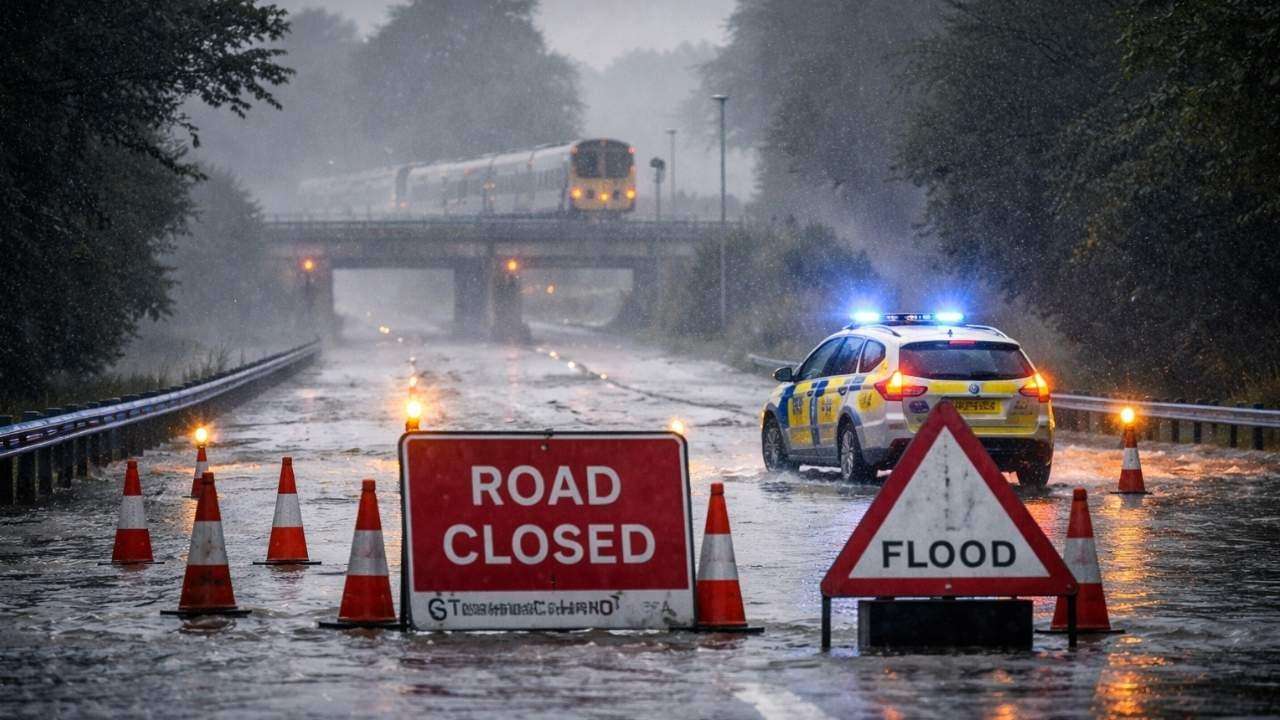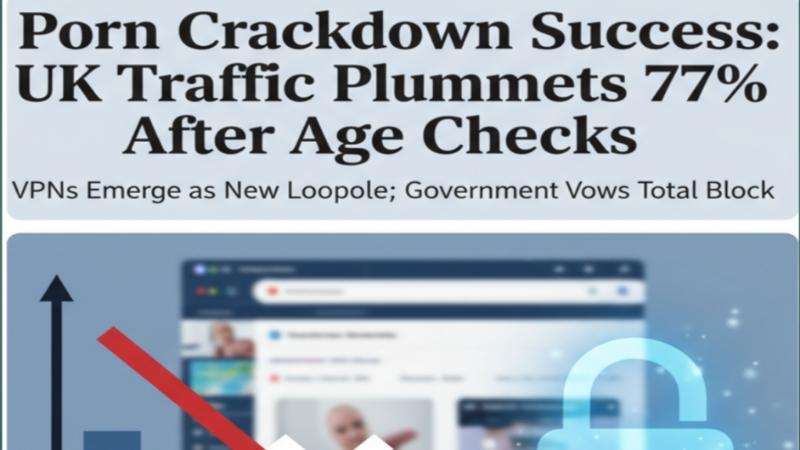A seismic shift in online viewing habits has been recorded in the United Kingdom following the introduction of robust age verification measures under the new Online Safety Act, with one major adult content provider reporting a staggering 77% drop in UK traffic since the rules took effect. The data, supported by regulatory body Ofcom's finding that overall visits to pornography sites fell by almost a third, marks a major legislative success in preventing children from easily stumbling across explicit material, Daily Dazzling Dawn understands.
The law, which came into force in July 2025, requires all commercial sites and apps that publish or host pornographic content to implement "highly effective age assurance" to prevent access by under-18s. However, this immediate success is now shadowed by the emergence of sophisticated loopholes, as a sharp spike in the download and use of Virtual Private Networks (VPNs) suggests a significant portion of the audience is simply bypassing the geographic restrictions to be "reclassified as non-UK traffic." This cat-and-mouse dynamic reveals the true scale of the challenge in enforcing online safety against determined users.
The War Against Underage Viewing: The Next Battlefield-While the initial traffic reduction is a strong sign of effectiveness, the UK government is under pressure to close these new gaps to achieve a complete shield for children. The current framework under the Online Safety Act places legal duties on platforms, with enforcement by Ofcom, but a multipronged, aggressive approach is seen as necessary to fully stop underage access.
Future government action to completely stop underage viewing will likely focus on several key areas. Firstly, mandating browser-level filtering that is enabled by default for all new UK accounts or devices, a step that would require collaboration or direct legislation impacting major technology firms. Secondly, disrupting VPN usage by working with major payment processors and domain registries to financially isolate sites that demonstrably fail to block UK users circumventing age checks. Thirdly, a national digital literacy campaign aimed at empowering parents with technical tools and knowledge to monitor and restrict home internet access, moving beyond reliance on site-level verification. Finally, the criminalisation of commercial promotion of age-verification bypass tools specifically targeting the UK market could add a legal deterrent to the technological battle.
The Devastating Impact: Addiction, Mindset, and Crime-The impetus for this legislative action is driven by a growing understanding of pornography's devastating effects on mental health, relationships, and societal safety, particularly for young, developing minds.
Pornography addiction, defined by compulsive consumption that interferes with daily life, is shown to severely damage a normal life. It often leads to social isolation and the erosion of a person's self-worth, replacing real-life connections with a secreted digital habit. In a person's sex life, constant exposure to scripted, often extreme content can desensitize the brain’s reward system, leading to unrealistic expectations, performance anxiety, and a diminished ability to achieve satisfaction with real-life partners. This can manifest as erectile dysfunction in men and general loss of libido, as the instant gratification of online material overrides natural intimacy.
The destruction extends to family life and relationships, where the secrecy around consumption breeds a fundamental lack of trust and emotional distance. Partners often feel inadequate, unloved, and betrayed, which can lead to conflict, breakdown in communication, and divorce. For children and adolescents, the impact on their mindset is catastrophic, as the material can establish a profoundly distorted and often misogynistic view of human sexuality. It normalises objectification, creating the belief that sexual encounters are performance-based rather than intimate and consensual.
Moreover, the link between pornography and sexual crime remains a critical concern. Research indicates that while pornography does not universally cause sexual violence, specific content, particularly that which is violent or demeaning, plays a clear facilitating role in normalising sexual aggression and reinforcing harmful "rape myths." The introduction of the non-fatal strangulation ban in pornography, where depictions of choking are now a criminal offence, is a direct legislative response to reports of this content conditioning viewers and driving the normalisation of violent acts in real-world sexual situations. This aggressive material can contribute to a mindset where non-consensual acts are perceived as acceptable, desirable, or even expected, thereby fuelling rape and other sex crimes.
The UK's comprehensive legislative package, therefore, represents a dual front: a technologically enforced barrier against underage exposure and a moral stand against the most violent and demeaning content, all aimed at protecting a generation from a pervasive and destructive digital influence.








.svg)


.jpg)
.jpg)